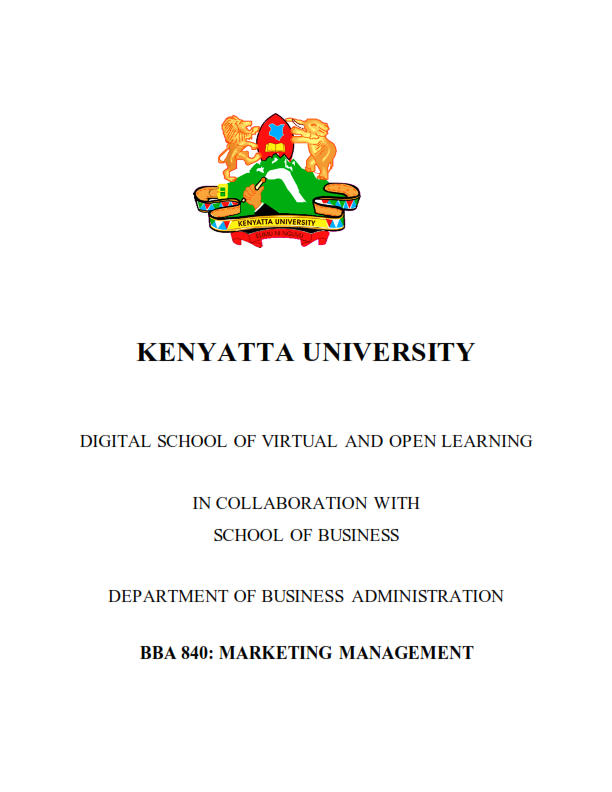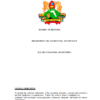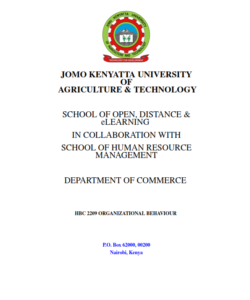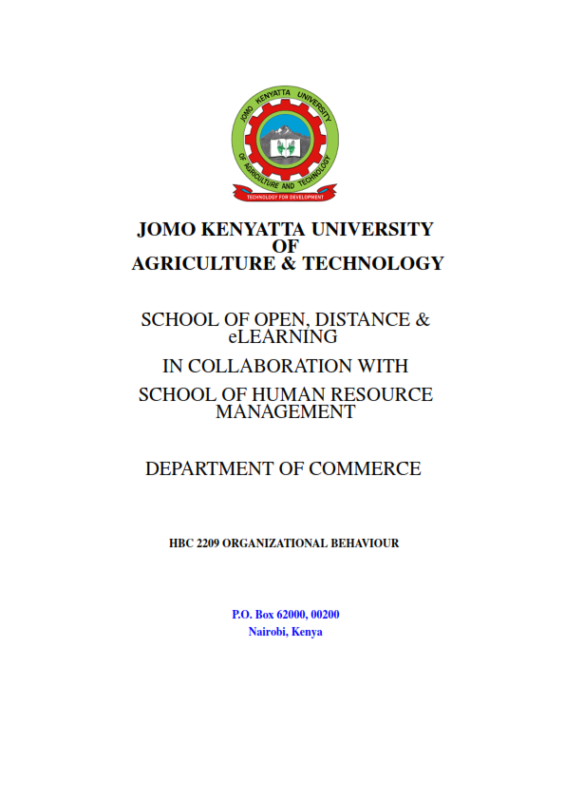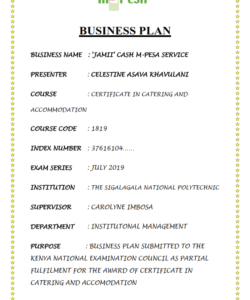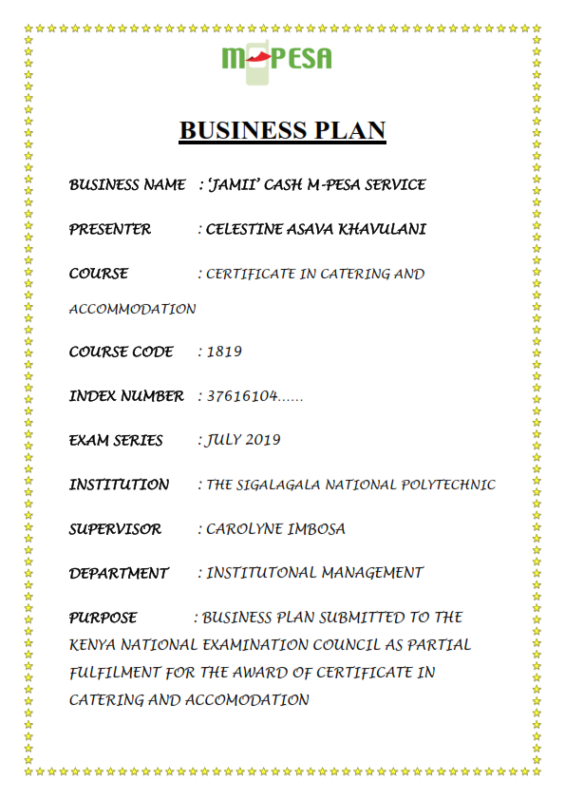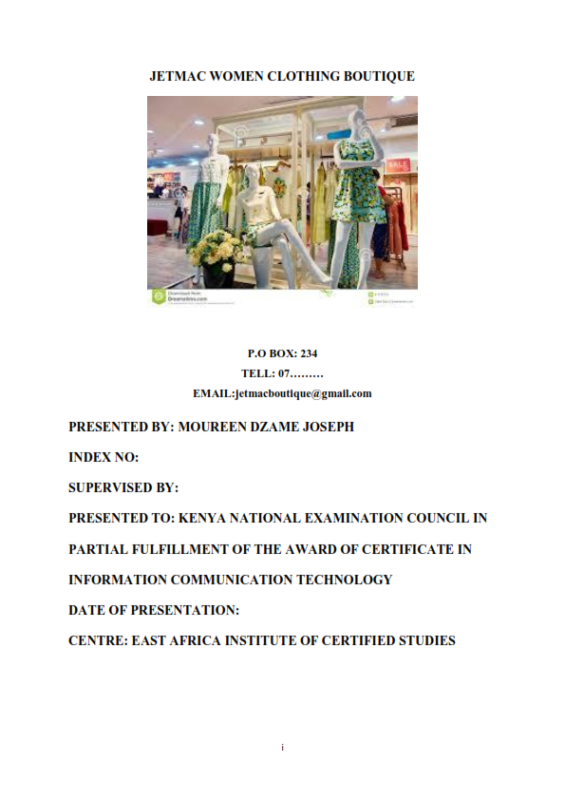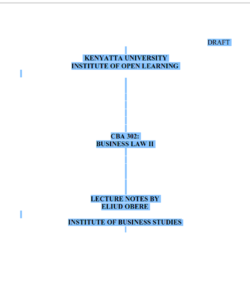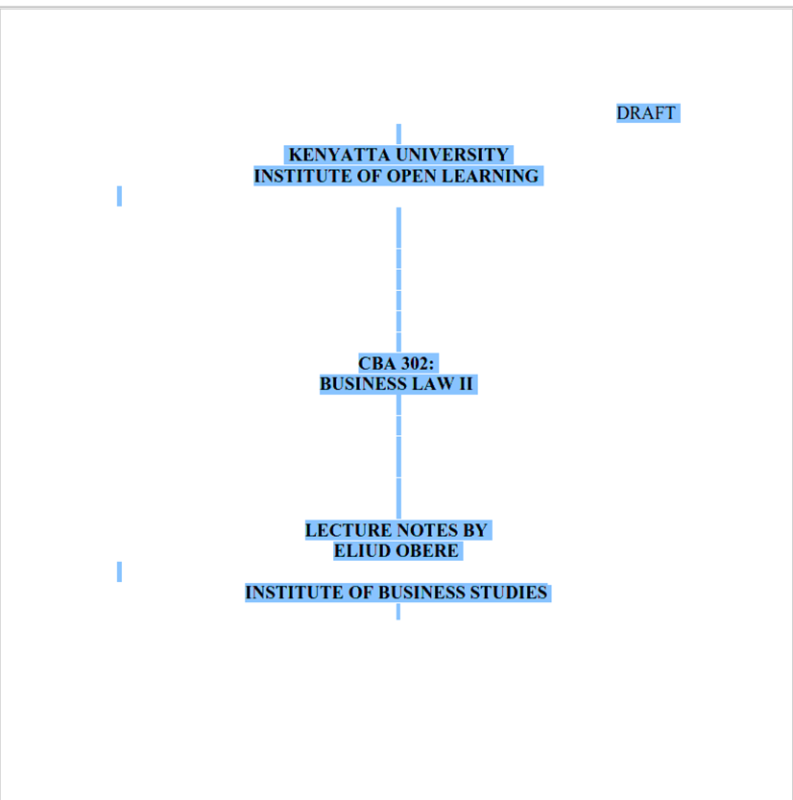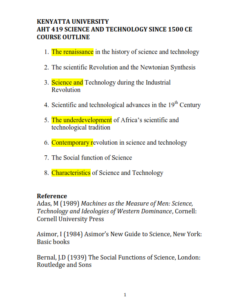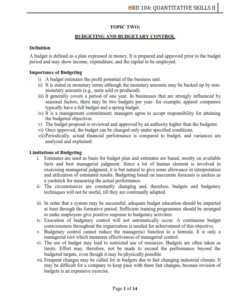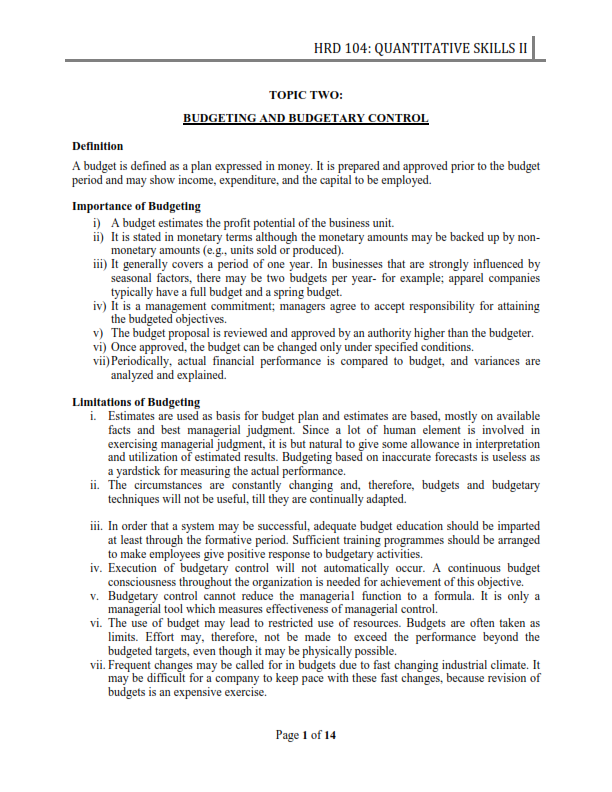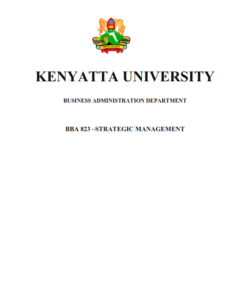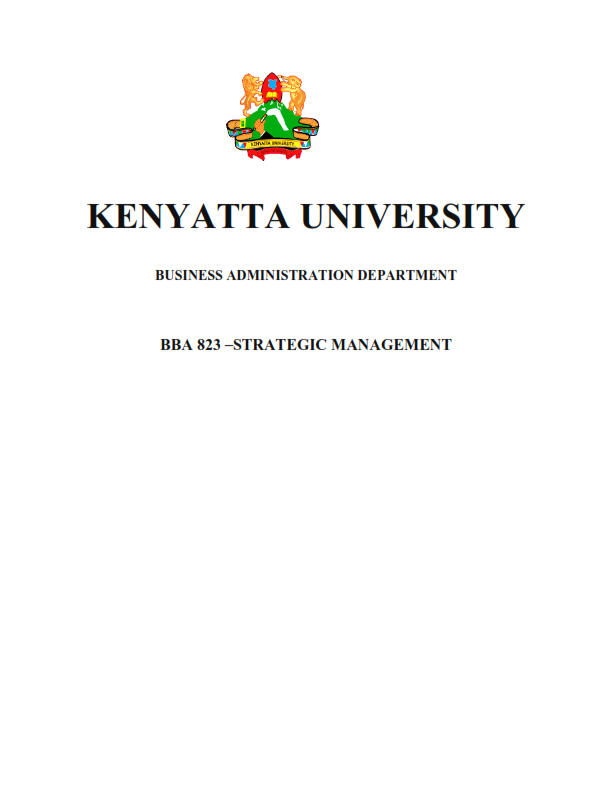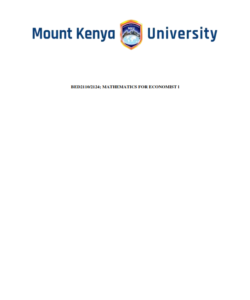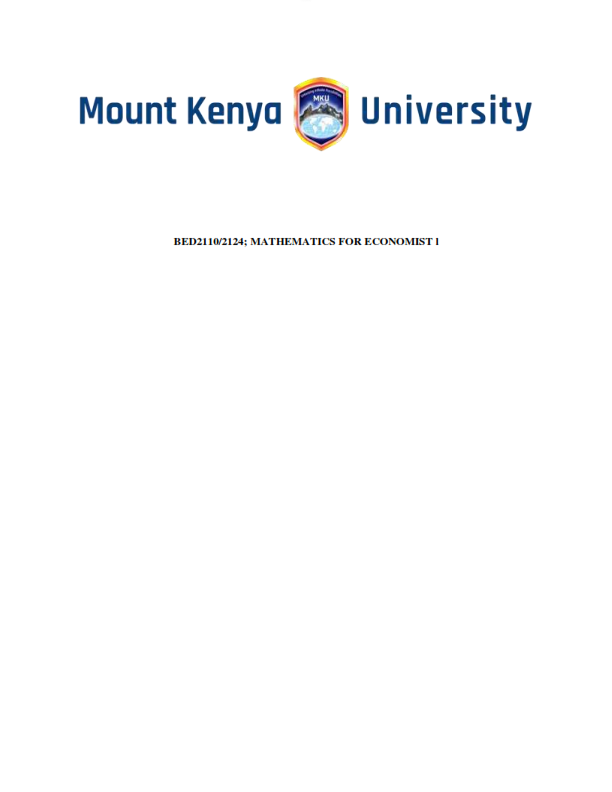BBA 840: Marketing Management Notes-Kenyatta University
KSh200.00
Institution: Kenyatta University
Course: Master of Business Administration
Pages: 137
File: pdf
Table of Contents
TABLE OF CONTENT 11
LESSON 1: DEFINITIONS AND CONCEPTS IN MARKETING MANAGEMENT 15
1.1 Introduction 15
1.2 Lesson Learning Outcomes 15
1.2.2 Different Marketing Management Orientations 17
1.2.3 Marketing and Change (Strategic Marketing Triangle) 19
1.3 Assessment Questions 21
LESSON 2: MARKETING ENVIRONMENTAL ANALYSIS 23
2.1 Introduction 23
2.2 Lesson Learning Outcomes 23
2.2.2 Internal Marketing Environment 25
2.2.3 Micro Marketing Environment 26
2.2.4 Macro Marketing Environment 28
2.2.5 SWOT Analysis 30
2.2.6 Responding to Changes in the Marketing Environment 32
2.3 Assessment Questions 33
2.4 References 34
LESSON 3: ANALYZING BUYERS’ BEHAVIOUR 36
3.1 Introduction 36
3.2 Lesson Learning Outcomes 36
3.2.1 Define the concept of consumer behavior 36
3.2.2 Factors Influencing Consumer Purchase Decisions 38
3.2.3 Consumer Decision Making Process 40
3.2.4 Consumer Adoption Process 42
3.2.5 Relevance of Understanding Consumer Behaviour to Managers 44
3.3 Assessment Questions 45
3.4 References 46
LESSON 4: MARKET SEGMENTATION, TARGETING AND POSITIONING 48
4.1 Introduction 48
4.2 Lesson Learning Outcomes 48
4.2.1 Concept of Market Segmentation 48
4.2.2 Relevance of Market Segmentation 50
4.2.3 Bases for Segmenting Consumer Markets 52
4.2.4 Concept Targeting 53
4.2.5 Selecting Target Markets 55
4.2.6 Explain the concept of market positioning and its relevance 56
4.3 Assessment Questions 58
4.4 References 59
LESSON 5: MARKETING INFORMATION SYSTEMS AND FORECATING 61
5.1 Introduction 61
5.2 Lesson Learning Outcomes 61
5.2.1 Marketing Information Systems (MIS) 61
5.2.2 Demand Forecasting and Market Measurement 64
5.3 Assessment Questions 66
5.4 References 67
LESSON 6: PRODUCT DECISIONS 69
6.1 Introduction 69
6.2 Lesson Learning Outcomes 69
6.2.1 Product/Service concept and Product Levels 69
6.2.2 New Product Development Process 72
6.2.3 Product Life Cycle and Strategies 73
6.2.4 Implications of PLC on Business Planning and Budgeting 76
6.3 Assessment Questions 78
6.4 References 79
LESSON 7: PRICING DECISIONS 80
7.1 Introduction 80
7.2 Lesson learning outcomes 80
7.2.2 Pricing Objectives 82
7.2.3 Pricing Strategies 84
7.2.4 Use of Pricing to Gain Competitive Advantage 86
7.3 Assessment Questions 88
7.4 References 90
LESSON 8:PLACE/DISTRIBUTION DECISIONS 91
8.1 Introduction 91
8.2 LessonLearning Outcomes 91
8.2.1 Market Coverage/Distribution Channels 91
8.2.3 Marketing/Distribution Channels 94
8.2.3 Design and Management of Marketing Channels 96
8.2.4 Logistics Management or Physical Distribution 99
8.2.5 E-tivity: Logistics Management or Physical distribution 99
8.3 Assessment Questions 101
8.4 References 103
LESSON 9: PROMOTION DECISIONS 104
9.1 Introduction 104
9.2. Lesson Learning Outcomes 104
9.2.1 Role/Objectives of Promotion 104
9.2.2 Promotional Mix/Tools 106
9.2.2 Developing Promotion Strategies 109
9.2.4 Integrated Marketing Communication 111
9.3 Assessment Questions 113
9.4 References 114
LESSON 10: INTRODUCTION TO MARKETING PLANNING 116
10.1 Introduction 116
10.2 Lesson Learning Outcomes 116
10.2.1 Concept of Marketing Plans and marketing planning 116
10.2.2 Process of developing a marketing Plan 118
10.2.3 Implication of marketing plans on Business Decisions 121
10.3 Assessment Questions 123
10.4 References 123
LESSON 11: MANAGING GLOBAAL MARKETING PROGRAMS 125
MANAGING GLOBAL MARKETING PROGRAMS 125
11.1 Introduction 125
11.2 Lesson Learning Outcomes 125
11.2.1 Nature of Global Markets 125
11.2.3 Global Marketing Environment 127
11.2.3 Trends in the Global Markets 130
11.3 Assessment Questions 132
11.4 References 133
ANSWERS TO LESSONS ASSESSMENT QUESTIONS 135

